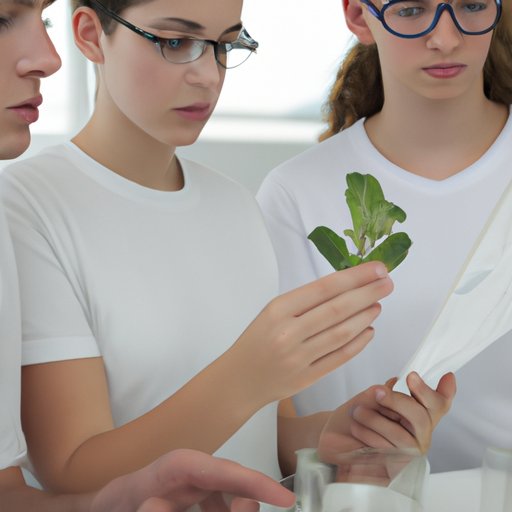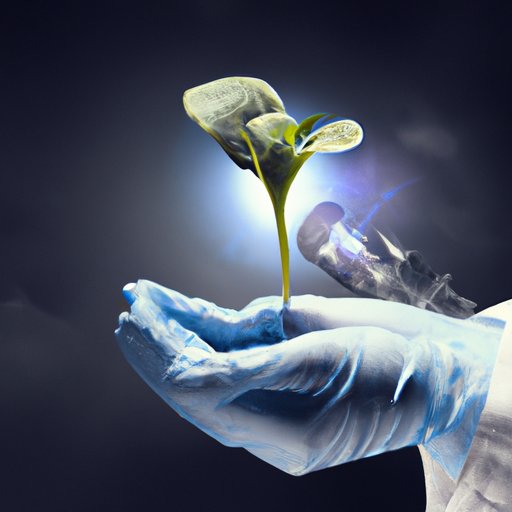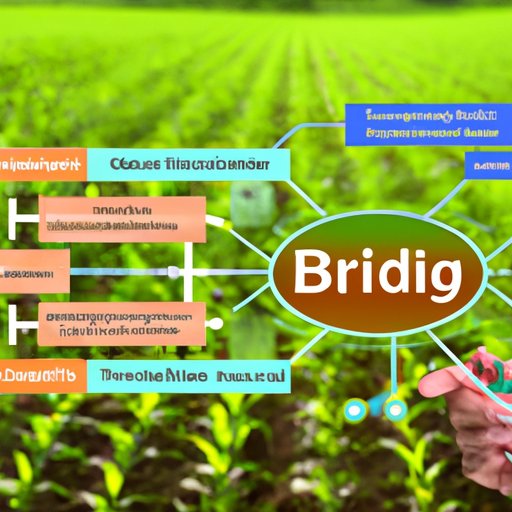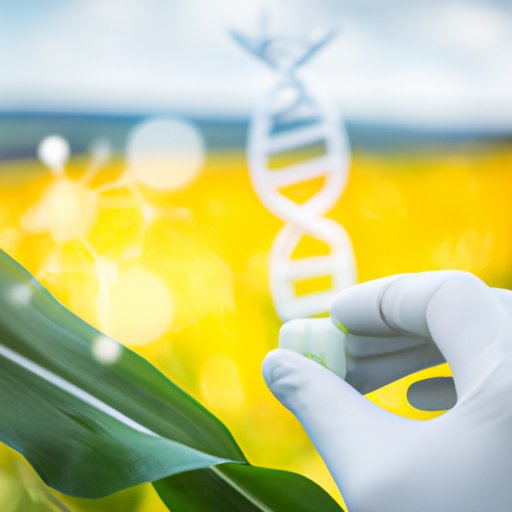Introduction
Biotechnology is a rapidly developing field that is revolutionizing how we produce food, generate energy, and treat diseases. It is the application of scientific and engineering principles to living organisms and biological systems in order to develop or modify products for specific uses. In other words, it is a science that uses living organisms, or parts of them, to create products and services for human use.
Biotechnology is a broad field that encompasses many different disciplines such as genetics, molecular biology, biochemistry and bioinformatics. Its applications are vast and diverse, ranging from agriculture and food production to medical treatments and energy sources.

Exploring the Basics of Biotechnology
So what is biotechnology? Biotechnology is the manipulation of living organisms (or their components) to produce useful products. This includes everything from traditional methods of breeding plants and animals to modern techniques such as genetic engineering and gene editing. It is a powerful tool that can be used to improve existing products and create new ones.
Biotechnology can be divided into two main categories: “red” biotechnology which deals with medical applications such as drug discovery and development, and “white” biotechnology which focuses on industrial processes such as energy production and food processing.
The Benefits of Biotechnology
Biotechnology has a wide range of potential benefits. For example, it can be used to produce more efficient and sustainable food production, greener energy sources and better medical treatments. According to a study by the National Academy of Sciences, biotechnology has the potential to reduce poverty and hunger, improve health, and protect the environment.
In terms of food production, biotechnology can be used to increase crop yields, reduce pesticide use, and even create new varieties of food. For example, genetically modified organisms (GMOs) have been developed to resist pests and disease, require less water, and even produce higher yields. In addition, gene editing techniques such as CRISPR can be used to modify existing crops to make them more nutritious or resistant to certain conditions.
Biotechnology can also be used to create greener energy sources. For example, algae can be used to produce biofuels and bioplastics, while bacteria can be used to produce electricity. These renewable sources of energy can help reduce our reliance on fossil fuels and reduce our carbon footprint.
Finally, biotechnology can be used to develop new treatments and therapies for a variety of diseases. For example, gene therapy is being used to treat cancer, while stem cell therapies are being used to treat neurological disorders. In addition, diagnostic tools such as DNA sequencing can be used to identify genetic mutations linked to diseases, which can lead to more effective treatments.

How Biotechnology is Changing Our Lives
Biotechnology has had a major impact on both agriculture and healthcare. In terms of agriculture, biotechnology has enabled us to produce food more efficiently and sustainably. For example, genetic modification and gene editing techniques have allowed us to create crops that are more resilient to pests and diseases, require fewer resources, and produce higher yields. These advances have helped to feed a growing global population and reduce poverty and hunger.
In terms of healthcare, biotechnology has enabled us to develop new treatments and therapies for a variety of diseases. For example, gene therapy and stem cell therapies have revolutionized how we treat cancer and other genetic disorders. In addition, diagnostic tools such as DNA sequencing have made it easier to diagnose and treat diseases. These advances have improved patient outcomes and saved countless lives.

The Role of Biotechnology in Agriculture
Biotechnology has played an important role in agriculture. One of the most common applications of biotechnology is the use of genetically modified organisms (GMOs). GMOs are plants or animals that have been genetically modified to express certain traits. For example, some GM crops have been modified to be more resistant to pests and diseases, require less water, and even produce higher yields.
In addition, gene editing techniques such as CRISPR can be used to modify existing crops to make them more nutritious or resistant to certain conditions. These techniques can also be used to create new varieties of plants that are more productive or more resistant to environmental stresses. By using biotechnology, farmers can produce more food with fewer resources and at lower costs.
The Impact of Biotechnology on Healthcare
Biotechnology has had a profound impact on healthcare. New treatments and therapies have been developed using gene therapy, stem cell therapies, and other biotechnological techniques. These treatments have revolutionized how we treat cancer and other genetic disorders, and have improved patient outcomes.
In addition, biotechnology has enabled us to develop better diagnostic tools. For example, DNA sequencing can be used to identify genetic mutations linked to diseases. This information can then be used to develop more targeted treatments, leading to better outcomes for patients.
The Ethical Considerations of Biotechnology
While biotechnology has many potential benefits, it also raises ethical concerns. For example, there are privacy and security concerns surrounding the use of biotechnology in healthcare. In addition, there are environmental concerns surrounding the use of GMOs and gene editing techniques in agriculture.
It is important to consider these ethical issues carefully before implementing any biotechnological solutions. We must ensure that any new technology is used responsibly and ethically, and that the potential risks are minimized.
A Look at the Future of Biotechnology
The future of biotechnology looks promising. Advances in medicine, agriculture and energy are likely to continue, and new technologies such as gene therapy, stem cell therapies and gene editing will become even more widespread. In addition, biotechnology could potentially be used to create entirely new forms of life, although this raises ethical questions that need to be addressed.
However, there are also potential risks and challenges that need to be considered. For example, the use of biotechnology could potentially lead to the emergence of new diseases or the spread of existing ones. In addition, there are ethical concerns surrounding the use of biotechnology, particularly in healthcare and agriculture.
Conclusion
Biotechnology is a rapidly evolving field that has revolutionized how we produce food, create energy and treat diseases. Its applications are vast and diverse, ranging from agriculture and food production to medical treatments and energy sources. While biotechnology has many potential benefits, it also raises ethical questions that need to be addressed. The future of biotechnology looks promising, but there are also potential risks and challenges that need to be considered.
(Note: Is this article not meeting your expectations? Do you have knowledge or insights to share? Unlock new opportunities and expand your reach by joining our authors team. Click Registration to join us and share your expertise with our readers.)
